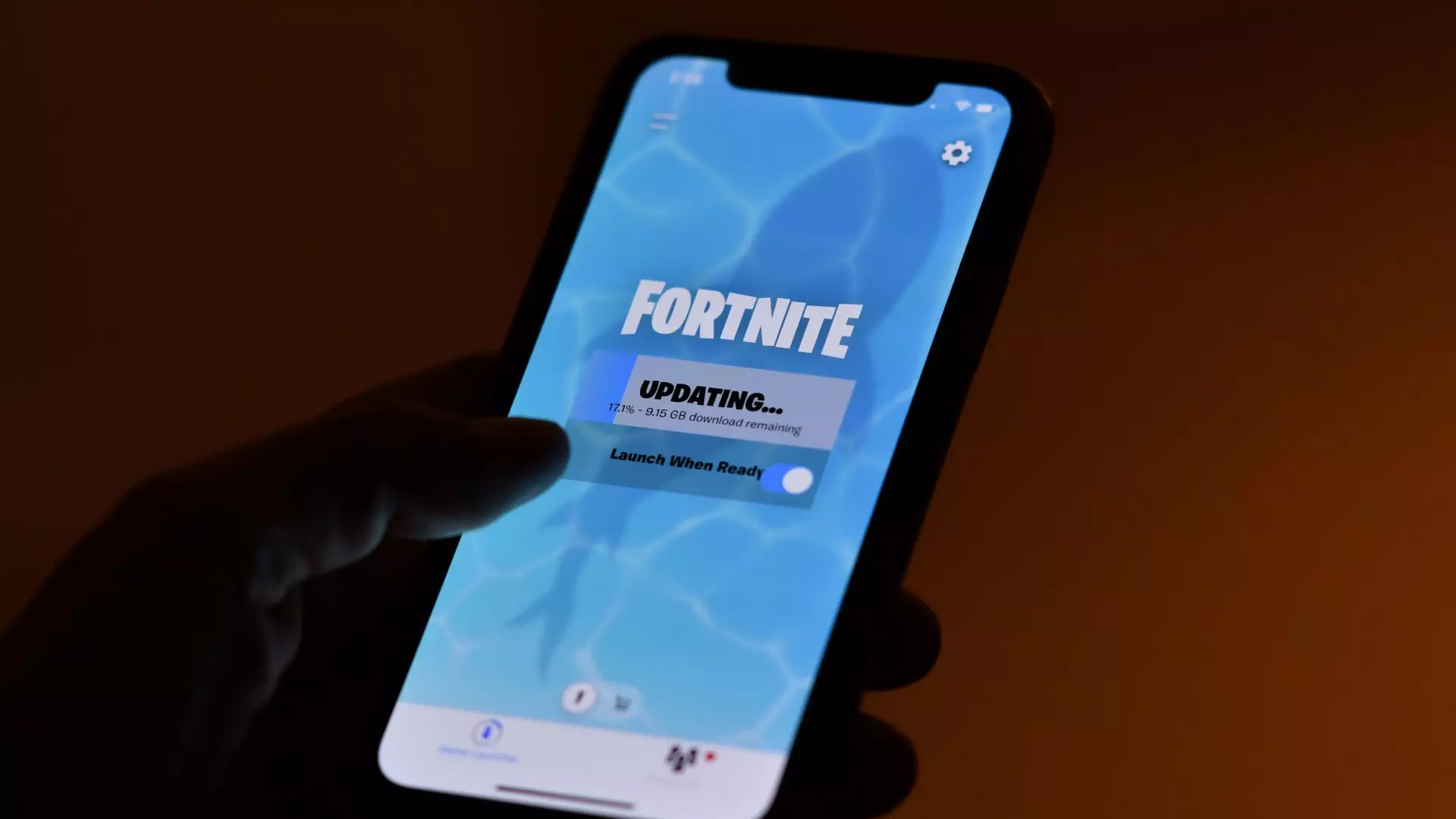In the ever-evolving landscape of digital commerce and entertainment, the tug-of-war between Apple and Epic Games over Fortnite embodies a larger narrative of corporate power, market monopolies, and consumer rights. Despite Apple’s tried-and-true approach to controlling its ecosystem, the saga surrounding Fortnite’s re-entry into the iOS App Store illustrates a reckoning that is long overdue in the tech domain. As Epic Games finds itself embroiled in this dispute, it is clear that Apple must evolve or face the consequences of a prolonged public relations nightmare.
The Courtroom Drama Unfolds
Recently, U.S. District Judge Yvonne Gonzalez Rogers issued a ruling that demands Apple to either resolve the standstill regarding Fortnite’s availability or prepare to substantiate its claims in court once more. This confrontation is less about a single gaming application and more about the fundamental principles governing app distribution and revenue models. The legal machinations appear to be enmeshed in the delicate balance of power that Apple wields over its vast network of developers.
Epic Games is not merely seeking a return of Fortnite to the App Store but is challenging the very fabric of Apple’s business practices. In a world where monopolistic frameworks smother innovation and stifle competition, Epic’s resistance is emblematic of a broader struggle that pits vision against corporate hegemony. The fact that Apple has thwarted Fortnite’s re-launch, citing impending judicial reviews, shows an unwillingness to engage openly and transparently with the developer community.
Legal Double Standards
Apple’s assertion that it removed Fortnite not from the App Store, but merely from alternative marketplaces raises eyebrows. This kind of digital doublespeak serves only to further emphasize the corporation’s intent to keep a chokehold on app distribution. Epic CEO Tim Sweeney’s assertion that Apple’s refusal to respond to their submission reflects a deliberate tactic to stall progress illustrates a disturbing reality: In Apple’s world, rules seem to be as malleable as its corporate interests.
Moreover, the judge’s directive that “the Apple official who is personally responsible for ensuring compliance shall personally appear” at the upcoming hearing is a remarkable demonstration of the judiciary’s growing impatience with Apple’s maneuvering. Such a request brings the case into a more personal realm of accountability, and it signals a sharp criticism of corporate opacity.
Consumer Rights at Stake
On a fundamental level, the ramifications of this ongoing dispute extend beyond the courtroom and into the hands of consumers. Apple’s insistence on a 30% cut from all app store purchases has long been a point of contention, drawing ire from developers and users alike. This issue is not simply about royalties; it is about autonomy and choice in the digital age. By denying Fortnite access, Apple not only punishes Epic but also the millions of users who want to continue enjoying the game on their favorite devices.
In effect, Apple’s dominance over the app ecosystem raises pressing questions about competition ethics. Are consumers losing out because of corporate greed? The answer lies in the repercussions of this battle. Should Apple fail to navigate this challenge responsibly, it risks further alienating both users and developer alliances, which are crucial to its continued success.
A Call for Accountability
The ongoing tussle raises an important question—what does it take for a corporate giant like Apple to be held accountable? Legal battles of this nature shine a spotlight on the often-overlooked power dynamics at play in technology and media narratives. As consumers and tech enthusiasts, we must rally behind a narrative that advocates for fairness and equitable practices in digital marketplaces.
Apple stands at a precipice, and its next moves could determine its legacy in the tech industry. Opting for negotiations instead of court battles could not only salvage its reputation but also foster a healthier environment for app developers. To dismiss this crisis would be to ignore a critical moment where agency, community, and corporate responsibility must intersect.
As stakeholders in this evolving digital landscape, our advocacy for transparency and collaboration may indeed shape the future of technology. The standoff between Epic Games and Apple is not simply a matter of corporate rivalry; it’s a bellwether for the future of app economies and consumer rights. In a world dominated by corporate juggernauts, vigilance, voice, and valor are our best tools in the fight for equitable access.


Leave a Reply